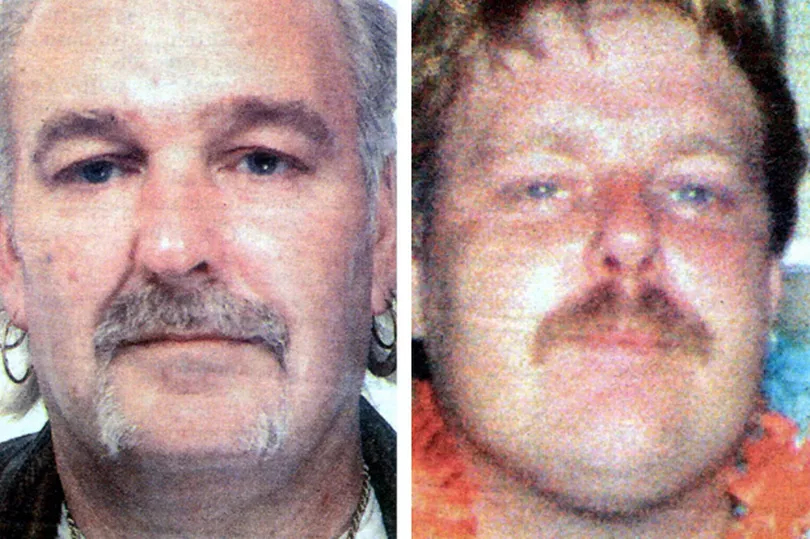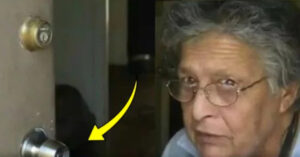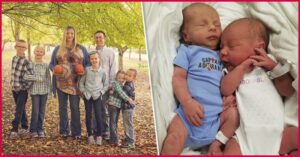They were a depraved pair of brothers of whom it was said beating and raping women was “almost a way of life”.
For two decades Graham and Simon Laskey preyed upon vulnerable women across South Wales, some of whom they found in the lonely hearts columns of newspapers.
They drugged their victims before sexually abusing them, keeping some of the women prisoner in their caravan for days on end.
The siblings ruled their victims by fear and thought they could get away with anything.
And for many years they did just that – until one teenager plucked up the courage to tell her mother what had happened to her.
The mother – who had herself been sexually abused by the brothers – went to the police
In response South Wales Police launched what was at the time one of the largest investigations of its kind.
It would take detectives two years to bring the brothers to justice.
The investigation led to a five-week trial – when their victims were forced to relive their abuse and give evidence.
Sending them down, the judge said they had “mercilessly abused” the women.
It is almost 20 years since the Laskeys were locked up for life, but the details of their offending still shocks.
The brothers’ reign of terror began as early as the 1960s but it was a sign of the way they were able to intimidate and dominate their victims that none felt able to come forward until 1997, when a teenage girl told her mother Simon Laskey had abused her.
The woman reported not just her daughter’s abuse to the police, but her own terrible ordeal.
She would eventually go on to make a remarkable 150-page statement detailing years of horrific sexual violence the brothers had inflicted on her, including tying her up in their caravan in Quaker’s Yard, Pontypridd, and keeping her there for days on end while they abused her.
That disclosure led to a major police investigation, codename Operation Narvik, which was headed by detective sergeant Sally Burke.
A team of 10 officers worked the case, and began trying to track down other victims – in one case they managed to locate a victim who had left South Wales following the abuse, based only on her first name.
Later that year police arrested the Laskey brothers, unemployed siblings who were well-known in the Pontypridd area.
Such was the control they exerted over their victims, it was only once the pair were safely locked up in prison on remand that some of the victims felt safe enough to tell police what had happened.
As they were interviewed, the victims all independently began to tell the same story.
They described how the brothers drugged them, most likely by putting ground-up sleeping tablets or other sedatives in cups of tea, before subjecting them to repeated rapes and sexual assaults.
The women would come around from the attacks knowing something had happened, but with no real recollection of events. The brothers would then beat them into silence.
The sexual abuse and intimidation some of the women suffered lasted for years, with many of the attacks happening in the siblings’ caravan.
Some had initially been contacted through lonely hearts columns in newspapers.
On one occasion Simon Laskey “sold” one of his victims to his older brother for £5 – and then drugged her and watched his brother rape her.
The earliest reported incident was in 1967.
During the investigation police took more than 200 witness statements, and were eventually able to lay charges covering eight victims – seven women, and a six-month old baby.
Police also charged them with another 13 counts of sexually abusing children – but the expected trial on these matters did not take place.
Such were the activities of the brothers, detectives believed there were other victims they did not find – in the words of the officer who brought the pair to court, “many, many more” victims.
Incredibly, even while the pair were being held on remand in prison awaiting trial, they were still responding to lonely hearts columns.
After an initial trial in Newport had to be abandoned, part-heard for legal reasons, the case came to Swansea Crown Court in September 1999 with the brothers denying a total of 20 charges – they claimed the victims were all conspiring against them.
Neither men gave evidence in their trial – as was their legal right – but made their victims relive the horrors of the abuse.
One victim spent six agonising days in the witness box giving evidence, and being cross-examined by barristers for the defendants.
For some of the victims it had been the second time that they had to appear before their abusers after the failure of the earlier trial.
The jury heard Simon Laskey had tried to perform an abortion on one of his victims as he raped her.
His brother inflicted “unimaginable horror” on a baby girl.
They beat some of their victims so severely they broke bones.
The defendants said nothing during the trial but perhaps their behaviour spoke volumes.
One of their victims had suffered from fits since being raped at their hands, and when she fitted while giving evidence and had to be helped from the witness box, the brothers laughed at her.
After five weeks of evidence and deliberations, the jury reached its verdicts.
Graham Laskey, aged 49, of Church Village, was convicted of five rapes, five other serious sexual offences, four indecent assaults on women, and an indecent assault on a baby.
He was given 10 life sentences.
His barrister, Wendy Joseph, described it as a “quite an appalling catalogue of offences”, and said the pattern of behaviour had become “almost a way of life”.
As he was taken down to the cells from the dock he looked up his victims in the public gallery, smiled, and told them: “We’ll be back.”
Simon Laskey, aged 37, of Treforest, was convicted of five rapes and one serious sexual offence.
He was given six life sentences – but refused to leave his cell to hear the sentence being passed.
The jury was unable to reach verdicts on another five counts.
The men had been due to face a second trial for sexually abusing children but judge Michael Burr ordered those counts should lie on file.
The judge said the brothers had “mercilessly abused their victims” in a dreadful catalogue of offences.
He said: “You targeted vulnerable people who, due to age or other circumstances, proved incapable of looking after themselves.
“You targeted your victims and showed callous indifference towards them in order to satisfy your perverted lust.
“All your victims bear the emotional scars and some still suffer the physical effects of the abuse.”
And the judge described the way they had conducted themselves in court as a “disgrace”.
The judge praised the the policewoman who led the investigation, detective sergeant Burke, saying she had “acted throughout in the highest traditions of the police service”.
Speaking after the sentencing in October 1999 the detective said the brothers’ victims had been put through a terrible ordeal of rapes, violence, and intimidation.
She said police could have had “a thousand charges against them” and every one of them would have involved violence as well as sex.
The officer said: “Imagine the very worst you can, add some more and then you have an understanding of what they did to these women. Many were raped over and over again.
“The brothers ruled by fear and believed they could do whatever they wanted – it is difficult to appreciate the hold they had on their victims. They were intimidated and beaten, totally dominated.
“The women were forced into sex time and time again and were put through the most unbelievable ordeals.”
The officer said the victims of the abuse had been the top priority for the investigative team.
She said: “Some suffer permanent scars in terms of mental and physical health.
“We had a victim care strategy, and each victim was allocated a specific contact officer who maintained that contact throughout the inquiry and court case.
“The sentencing of the brothers is definitely part of the recovery process for these women. Some of them have rebuilt their lives, or are doing so, and this will enable them to put it behind them once and for all.”
She added: “There were almost certainly many, many more victims.”
And yet even while serving his life sentence in prison Graham Laskey would continue to look for women in lonely hearts columns.
In 2008 he posted an advert on the website friends4lifers in which he boasted about his “nice light blue eyes”, long blond hair, and friendship with the singer Tom Jones.






